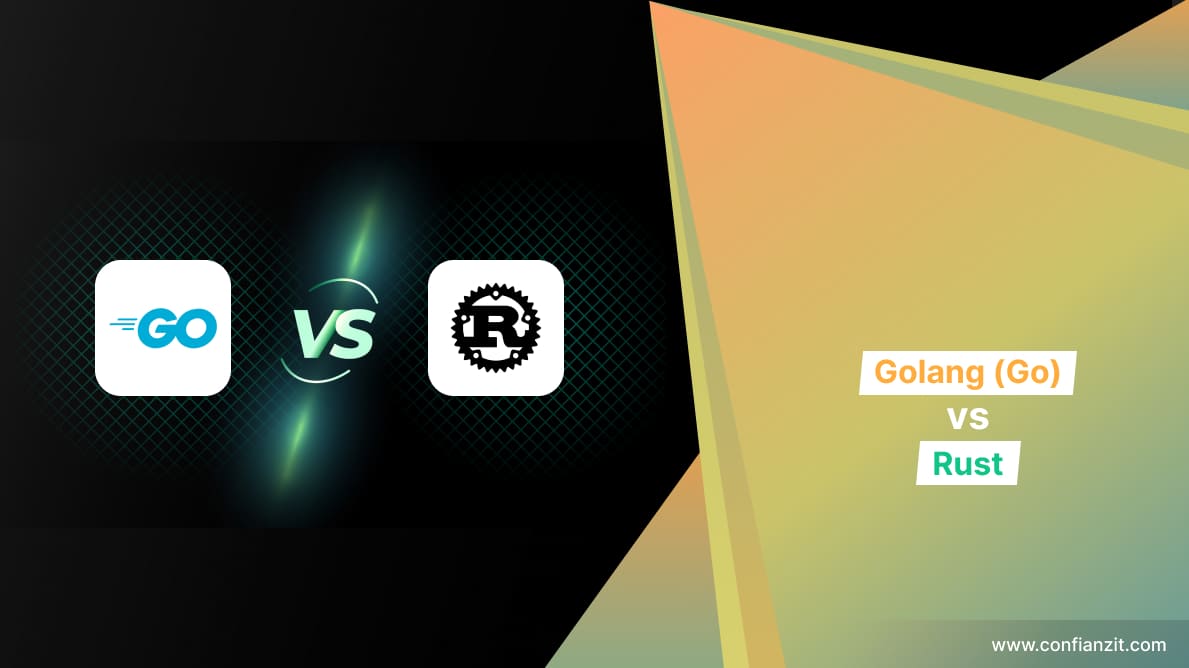Can’t decide whether to choose Golang or Rust? Rest assured that both are excellent open-sourced programming languages.
Even though they’re relatively new and young, they have become quite popular and widely used. So you’re not alone when making this decision. When it comes down to it, which one is better?
This blog post will compare the two languages in several key benchmarks to help make your choice.

What is Golang?
Golang – also known as “Go” – is a programming language designed by Google developers Robert Griesemer, Rob Pike, and Ken Thompson. They developed Go as an alternative to C++ – just as efficient but easier to learn, write, read, and deploy. The language uses “Goroutines,” which makes it easy to build functions that run concurrently with other functions and computing environments.
Go is statically-typed and compiled. The static type means the language is stricter, which is beneficial for error detection in syntax. It’s also a compiled language – meaning it’s converted to machine code before execution – which helps it run faster. Other notable benefits of Golang are its effective memory management and multithreading.
What is Rust?
Rust is a programming language designed by Graydon Hoare while working at Mozilla Research. Similar to Golang, it is compiled and statically-typed. But Rust also has the added benefit of being multiparadigm (supports multiple programming paradigms) and high-level. It’s primarily built to enhance security, stability, performance, and speed – helping to solve memory management and concurrency issues. In other words, it’s not only fast but memory-safe.
Its key features are why it’s commonly used for gaming engines and operating systems. Rust is widely adored and has been voted the “most loved programming language” for six years straight by a Stack Overflow Developer Survey.
Golang vs. Rust: Benchmark Comparison
To help you determine which language is best for you, we will compare Golang and Rust in six key categories: performance, concurrency, memory management, developer difficulty, scalability, and features.
Performance
Since Golang and Rust are compiled languages, they will be relatively fast. That is because they can efficiently produce and translate machine code without needing a virtual machine.
But between the two, Rust is the better-performing language. In fact, high performance is one of its main pillars. They provide safer memory management and concurrency at fast speeds, which was an issue plaguing older languages like C or C++.
Golang is less concerned with the speed of execution and more with the speed of development. It’s designed so that it’s easy to learn and build. In addition, Go is more focused on being able to compile lots of code quickly as opposed to generating code. So, it prioritizes compilation time rather than runtime.
In short, if you’re looking for something that performs and runs fast, you go with Rust. If you’re looking for something fast and easy to develop, go with Golang.
Concurrency
Golang was built for concurrency, meaning it can efficiently run multiple tasks at once. It uses lightweight threads known as Goroutines, which can be utilized in large numbers without affecting performance.
On the other hand, the concurrency situation with Rust is relatively new and actively developing. It recently implemented a native await/async syntax and is much better at guaranteeing memory safety.
So, regarding concurrency, the match goes to Golang and its lightweight Goroutines.
Memory management and safety
With memory management, Rust developers have more control over managing their memory, as they can see when data is freed in the code. Golang uses a garbage collector where data is not freed right away as it goes through background checks before being released. So, if you have a service that is constantly updating and needs fast access to data, then Rust is the better choice.
Memory safety is all about preventing any issues or bugs. Golang also uses the garbage collector to ensure there are no vulnerabilities or leakage. Rust can thoroughly check and resolve memory problems (especially data race conditions) without a garbage collector. As a result, it can perform higher than Go. So, in terms of safety, Rust also takes the cake.
Developer difficulty
Golang was made for quick development. The reason it exists is to be a simpler alternative to C++. The limited syntax is easy for developers to understand in hours. Even though it has great concurrency, it comes at the cost of memory safety.
On the flip side, Rust has a more tricky and complex syntax. Compared to Go, it’s a much steeper learning curve, potentially taking weeks to learn. But on the bright side, it has better memory safety.
So, in terms of developer experience and difficulty, Golang is much easier to learn than Rust.
Scalability
Scalability is about how fast a system can be built. It’s less about performance and execution and more about development speed. As we now know, Golang has a limited syntax, which makes it easier to learn. Rust is more complex and timely to learn and understand. In this instance, Go is better suited for enterprises and organizations with large applications that want to reduce development time.
If you’re willing to sacrifice performance runtime in favor of faster development time, then Golang is the way to go.
Features
Golang’s simple language is also the reason why it only has a few features, which are primarily built around enhancing concurrency. Rust’s complex syntax allows developers to be more expressive and flexible with their code. As a result, they can include more features than Go, such as error handling and data race prevention. So, while the language may be challenging to learn, you’ll be able to get more tools to achieve the best possible performance.
In essence, Rust is more feature-heavy than Golang.
Conclusion
Golang and Rust are two of the most efficient programming languages today. They’re both similar in many areas and benchmarks, so you can’t go wrong by choosing Golang or Rust. It simply boils down to personal preference and what’s best for your system. Once you’ve chosen, Confianz can help you with development.
Hire Application Developers from Confianz Global®
Headquartered in Charlotte, North Carolina, Confianz Global® stands as a prominent software solutions company that specializes in developing web and mobile applications. Our operations span across the United States, allowing us to furnish our clients with adept and experienced developers. Leveraging our extensive expertise gained from catering to diverse custom application development endeavors, ranging from small and medium-sized businesses to Fortune 100 corporations, we guarantee the triumph of your project.
Contact us to learn more!







